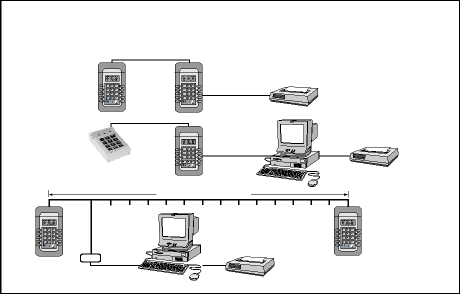

|
Flexi-Scan E |
|
||
|
FSE02YYX00
FSE03YYX00
X = frequency |
Manual Editing: RS232 PC Comms; Optional PC Software; Serial Printer Output RS485 Multi-drop; Optional PC Software; Real Time Clock; (requires CV02YYOM)
1 = 125 kHz, and 2 = 281 kHz |
||
|
|
Features: |
||
|
The Flexi-Scan E is primarily designed to control access but has added features. These can be used to control costs by protecting company assets, enhancing safety in the workplace and limiting access to machinery. These benefits can be achieved by simply presenting individualised Impro Tags to strategically placed Scanner Units.
Each system has the capacity to validate up to 2000 individual tags, each with its own unique, unalterable code, set by our factory from a bank of 94 billion discreet numbers. The robust tags are passive (require no battery), proximity (no contact) and waterproof.
For extra security the system can be programmed to require a personal identity number (PIN), entered on the Scanner’s keypad, in addition to a valid Impro Tag.
In addition to controlling access, Flexi-Scan E is able to collect and store each transaction in its nonvolatile memory, which will retain the information even in the event of power failure. Once stored, this "clocking" information is transmitted to the on-line computer, from which it can be extracted and used in a time and attendance program |
|
||
Specifications
|
16 MHz INTEL 80251 with nonvolatile memory |
|
(excluding door latch) 13 V to 15 V AC or 18 V to 22 V DC at 250 mA |
|
(SPDT) Relay rated at 1,0 A 30 V DC |
|
Time: |
Relay time can be adjusted to operate for between 0,5 seconds and 27,7 hours after valid code is detected (default is 2 seconds) |
|
(SPDT) Relay rated at 1,0 A 30 V DC |
|
Time: |
Adjustable to remain activated for between 0,1 and 600 seconds (default is 20 seconds) |
|
Single channel, with a remote reader attachable in parallel to the on-board reader |
|
|
|
Cabling Distance: |
25 m (82 ft) (maximum) from unit |
|
Location: |
Certain models can be installed in harsh environments |
|
Status Indicators: |
Three LED's, one indicates 'Power on / Present Tag', the second LED is lit on receipt of a valid code, indicating 'Access Allowed', and the third LED indicates 'Access Denied', and internal buzzer |
|
|
|
Operating Distance: |
15 m (50 ft) (maximum) from unit |
|
Location: |
Certain models can be fitted in harsh environments |
|
Status Indicators: |
Three LEDs ( as are fitted to the housing) indicating Present Tag, Access Allowed and Access Denied |
|
Rubber keypad units for PIN input |
|
(Between the passive tag and internal reader coil) approximately 100 mm (4") above and below the base of housing, depending on the type of tag used (rectangular tags read slightly further than circular tags) |
|
The user can define mandatory PIN codes for tag holders (if used, the remote reader also requires the PIN code facility) |
|
Three dry contact inputs, protected to +/- 80 V |
|
Microswitch integrated into housing and wired into the CPU board, generates an alarm if the housing cover screw is withdrawn |
|
Piezoelectric buzzer on CPU board inside plastic cabinet |
|
|
|
Temperature: |
- 25°C to + 70°C (+ 13°F to + 158°F) |
|
Humidity Range: |
0 - 95% non-condensing |
|
L = 161 mm, W = 90 mm, H = 45 mm (ABS plastic) |
|
Most materials have no effect on performance, except metal. Thus the unit must not be mounted on or adjacent to any metallic surface including steel reinforcing rods. Three screw holes are provided in reader base |
|
281 250 Hz or 125 000 Hz |
|
DTR, CTS, Tx, Rx ASCII, 8, N, 1, 1. Selectable 9600, 4800, 2400, 1200 baud |
|
2 wire multidrop up to 16 units. Use CV-02GB-OM RS232 to RS485 converter |
|
13,8 V at 600 mA |
|
Tags can be added at any time, up to the memory limit (2000 tags) |
|
Battery back-up: A comprehensive charging system for 1,2 Ah to 6,4Ah lead-acid gel batteries which will provide 5 to 24 hours of continuous power after mains failure. Optional battery is located separately. The charger system has internal current limiting and thermal shutdown, as well as circuitry to reduce current consumption after an extended power failure. |

Flexi-Scan E - is used for access control but can also be used to control photocopiers, vending machines, power equipment and machinery.
There are 2 variations:
Manual Editing - RS232 PC Comms
Optional DOS or Windows Software
Serial Printer Output
RS485 Multi-drop - Optional DOS or Windows Software
Real Time Clock

Dos Software
FSD01YY
This software provides PC monitoring, reporting and control of up to 16 Flexi-Scan E units using a low cost PC.
Features:
2000 tags
Addition, Deletion and Modification of user information
Record of Name, ID number, Department, Tag Status
Event credit, e.g. number of photocopies available
Latch time
Alarm duration
Date and time
Door open and door not opened alarm parameters
Latching type: Single, Continuous and Toggled
Sequential report
Access and Event reporting with department and cost summaries
History of reports
Report by date or on last transaction batch
Online monitoring of transactions
Printing of reports